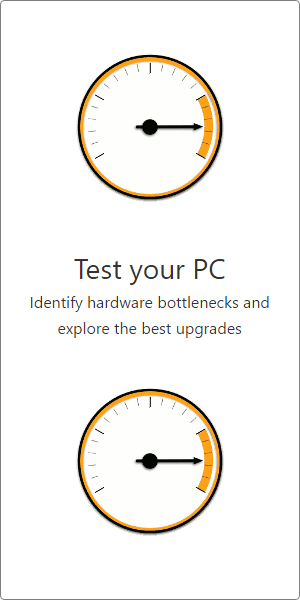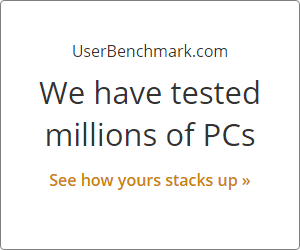Effective Speed
+94%
Poor: 39%
Great: 46%
SPEED RANK: 142nd / 713
Poor: 19%
Great: 25%
SPEED RANK: 199th / 713
| Effective 3D Speed
Effective 3D Gaming GPU Speed |
42.8 % | Hugely faster effective speed. |
22 % |
Average Score
+90%
Overclocked Score
+106%
Game FPS
+29%
Value & Sentiment
+984%
Nice To Haves
+49%
Conclusion
Average Bench 42.8%
Average Bench 22%
User Builds
259,091
60,738
Systems with these GPUs
Top Builds that include these GPUs

 GPU
GPU
